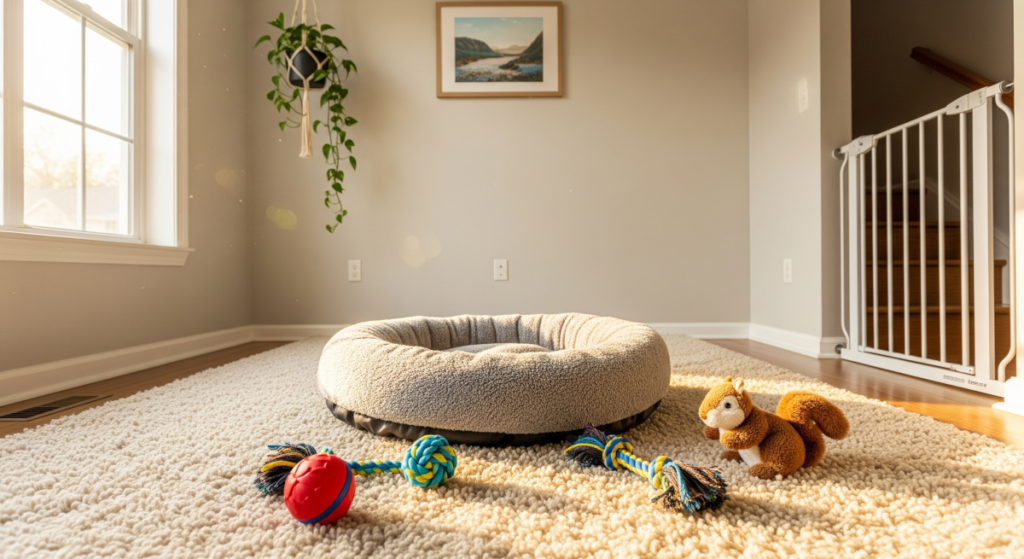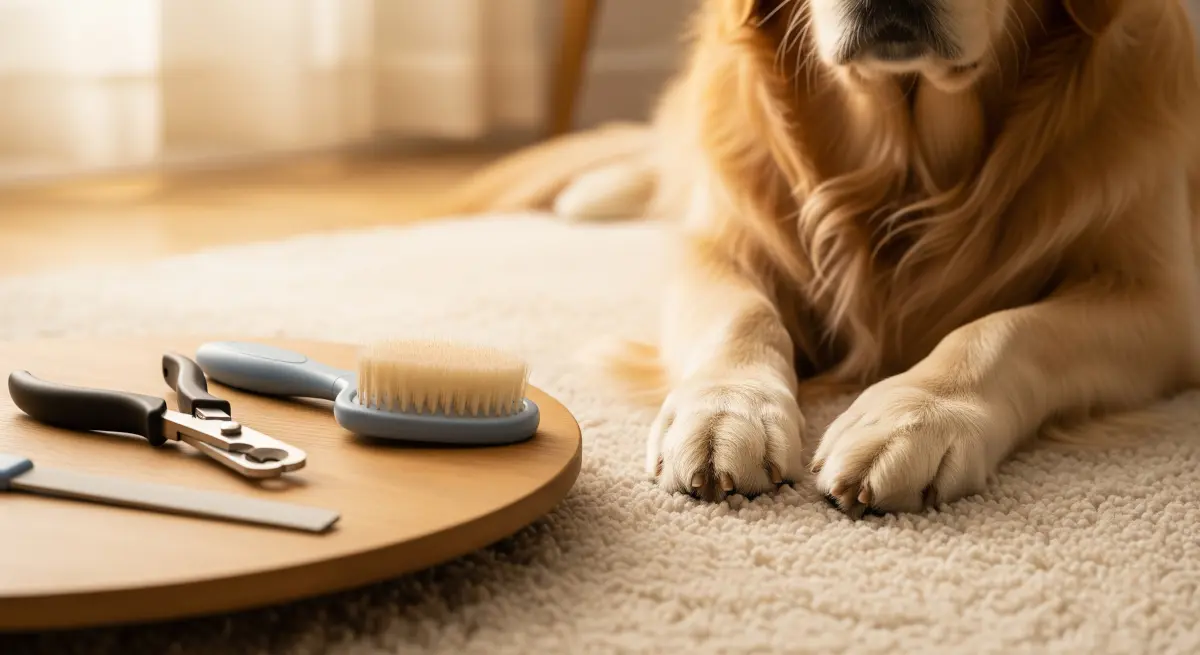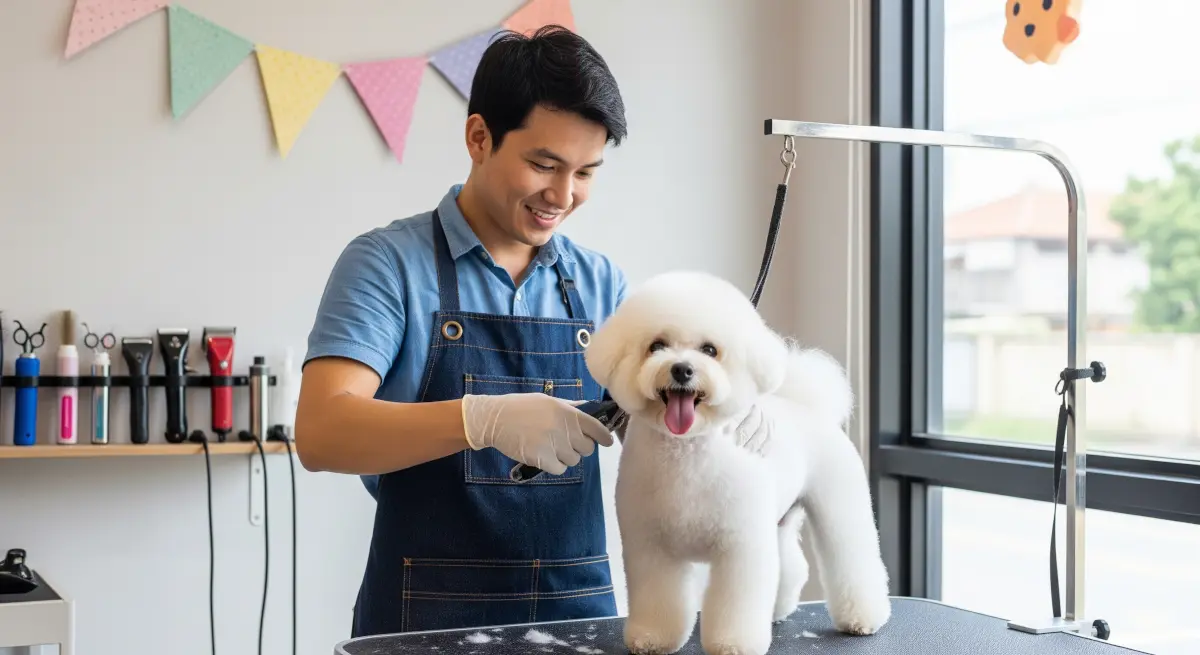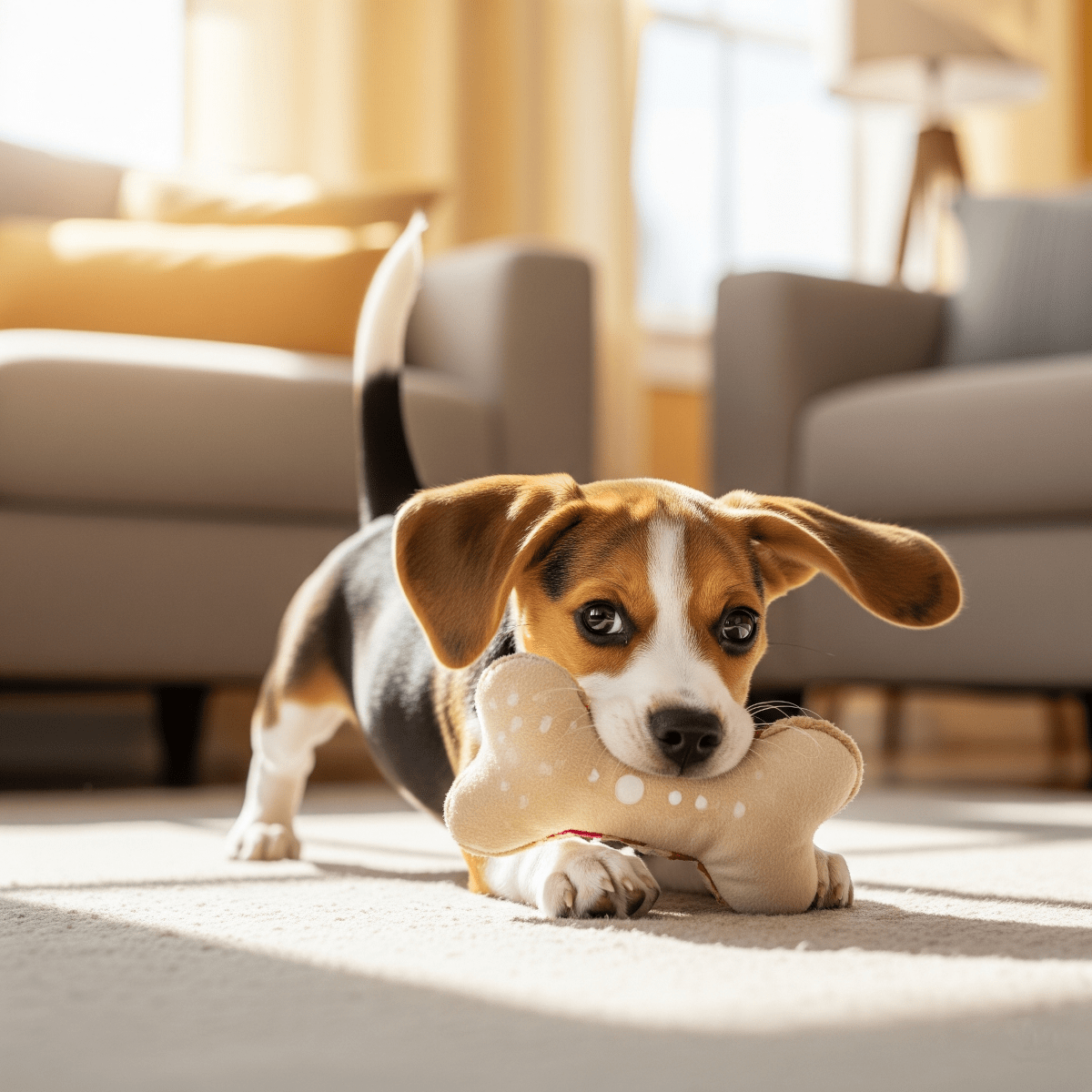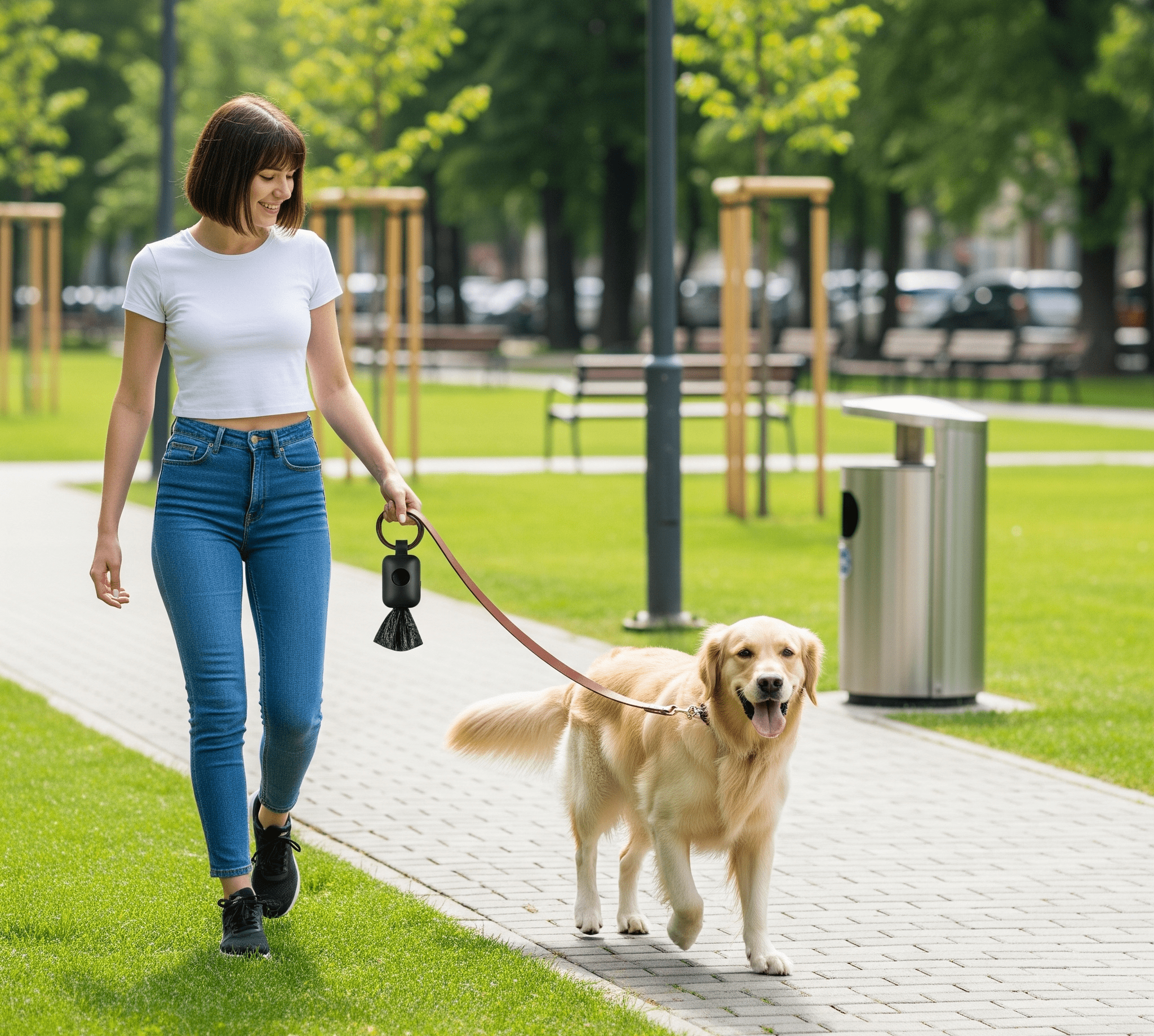Getting ready for a puppy is one of the most exciting yet overwhelming experiences for new pet parents. With over 38 million households in the U.S. welcoming dogs into their families each year, preparation is key to ensuring both you and your furry friend start off on the right paw. From puppy-proofing your home to stocking up on essential supplies, proper preparation can make the difference between a smooth transition and weeks of stress for everyone involved.
Whether you’re a first-time dog owner or adding another member to your pack, this comprehensive guide will walk you through everything you need to know about how to get ready for a new puppy. We’ll cover the essential supplies, safety measures, and preparation steps that will set both you and your puppy up for success from day one.
Table of Contents
- Puppy-Proofing Your Home
- Essential Supplies Checklist
- Preparing for Your First Vet Visit
- Understanding Your Puppy’s Basic Needs
- Creating Safe Spaces and Comfort Zones
- Managing the Adjustment Period
- Frequently Asked Questions
Puppy-Proofing Your Home: Safety First
Learning how to be a good dog owner starts with creating a safe environment for your new companion. Puppy-proofing is essential because young dogs explore the world with their mouths and have an innate curiosity that can lead them into dangerous situations.
Secure Potential Hazards: Start by getting down to your puppy’s eye level and scanning each room. Look for loose electrical cords, cables, and chargers that could pose electrocution risks. Use cord protectors or tape cords to baseboards to keep them out of reach.
Remove Toxic Items: Common household items like chocolate, grapes, onions, and certain houseplants can be toxic to puppies. Store medications, cleaning supplies, and chemicals in secure cabinets with childproof locks. Popular houseplants like lilies, azaleas, and philodendrons should be relocated to areas your puppy cannot access.
Block Off Dangerous Areas: Use baby gates to restrict access to stairs, balconies, or rooms with delicate items. These barriers also help establish boundaries while your puppy learns house rules.
Essential Supplies Checklist for New Puppy Parents
How to get your home ready for a puppy involves gathering the right supplies before your new family member arrives. Having everything prepared reduces stress and ensures your puppy’s immediate comfort.
Feeding Essentials
- Food and water bowls: Choose stainless steel or ceramic bowls that are easy to clean and won’t harbor bacteria
- High-quality puppy food: Select age-appropriate food formulated specifically for puppies’ growth needs
- Treats for training: Small, soft treats that can be consumed quickly during training sessions
Comfort and Safety Items
- Comfortable dog bed: Choose washable materials sized appropriately for your puppy’s expected adult size
- Crate or carrier: Essential for training and providing a secure den-like space
- Blankets and towels: Soft, washable bedding for comfort and warmth
Training and Exercise Gear
- Adjustable collar and leash: Start with lightweight options that can grow with your puppy
- Harness: Often more comfortable and safer for young puppies than collars alone
- Variety of toys: Include chew toys for teething, interactive puzzle toys for mental stimulation, and comfort toys
Grooming and Health Supplies
- Puppy-safe shampoo
- Brush appropriate for coat type
- Nail clippers
- Toothbrush and dog-safe toothpaste
- Waste bags for outdoor cleanup
Preparing for Your First Vet Visit
Scheduling veterinary care is crucial when learning how to prepare for a new puppy. Your first vet visit should occur within the first week of bringing your puppy home.
Choose Your Veterinarian: Research local veterinary clinics before your puppy arrives. Look for practices with good reviews, convenient hours, and experience with your puppy’s breed if applicable.
Gather Important Documents: Collect any health records, vaccination history, and registration papers from the breeder or rescue organization. This information helps your vet create an appropriate health plan.
Prepare Questions: Write down questions about feeding schedules, training advice, socialization timelines, and any concerns about your puppy’s behavior or health.
During the first visit, your veterinarian will conduct a comprehensive physical exam, discuss vaccination schedules, and screen for parasites. They’ll also provide guidance on flea and tick prevention, which is essential for protecting both your puppy and your family’s health.
Understanding Your Puppy’s Basic Needs
Nutrition Requirements: Puppies need specially formulated food that supports their rapid growth and development. Feed smaller, more frequent meals (typically 3-4 times daily for young puppies) to support their faster metabolism and smaller stomach capacity.
Sleep and Rest: Puppies sleep 18-20 hours per day, making a comfortable, quiet sleeping area essential. Avoid placing their bed in high-traffic areas where they might be disturbed.
Exercise Needs: While puppies have boundless energy in short bursts, they also tire quickly. Provide age-appropriate exercise that doesn’t strain developing joints. The general rule is five minutes of exercise per month of age, twice daily.
Mental Stimulation: Young dogs need mental enrichment to prevent boredom-related behavioral issues. Puzzle feeders, interactive toys, and training sessions provide the mental workout puppies crave.
Creating Safe Spaces and Comfort Zones
Establishing designated areas helps your puppy feel secure while learning household rules. Create a “puppy zone” where they can eat, sleep, and play safely without constant supervision.
The Feeding Area: Choose a quiet corner away from foot traffic where your puppy can eat without feeling anxious or protective of their food. Consistency in feeding location helps establish routine.
Sleep Space: Whether using a crate or a designated bed area, ensure the sleeping space is warm, comfortable, and free from drafts. Many puppies benefit from having a crate that serves as their den, providing security and aiding in house training.
Play Zone: Designate an area with appropriate toys where your puppy can play and explore safely. This helps direct their natural curiosity toward acceptable activities.
Managing the Adjustment Period
Understanding what to expect during your puppy’s first few weeks home helps set realistic expectations and reduces frustration for everyone involved.
Normal Adjustment Behaviors: Expect some whining, especially at night, as your puppy adjusts to being away from their littermates. House training accidents are normal and will decrease with consistent routine and positive reinforcement.
Establishing Routines: Puppies thrive on predictability. Create consistent schedules for feeding, potty breaks, exercise, and bedtime. This structure helps them feel secure and accelerates learning.
Socialization Considerations: The critical socialization period occurs between 3-14 weeks of age. While your puppy may not be fully vaccinated, controlled exposure to new experiences, people, and environments is crucial for healthy development.
Family Integration: Teach all family members how to interact gently with the puppy. Establish rules about feeding, handling, and playtime to ensure consistency in the puppy’s experience.
Frequently Asked Questions
How long before getting a puppy should I start preparing?
Start preparing at least 2-3 weeks before bringing your puppy home. This gives you time to research veterinarians, purchase supplies, puppy-proof your home, and establish routines. If you’re getting a puppy from a breeder, you can often begin preparation once you’ve placed a deposit and know your expected pickup date.
What’s the most important thing to have ready before my puppy arrives?
A safe, puppy-proofed environment is the most critical preparation. Your puppy’s safety should be the top priority, followed by having basic supplies like food, water bowls, a comfortable bed, and a secure area where they can retreat and feel safe.
Should I take time off work when I first get my puppy?
If possible, taking at least a few days off work is highly beneficial for helping your puppy adjust to their new home. This time allows you to establish routines, begin house training, and help your puppy feel secure in their new environment. Many puppies experience separation anxiety when left alone too soon.
How much should I expect to spend on initial puppy supplies?
Initial setup costs typically range from $200-500 for basic supplies, not including the puppy’s purchase price. This includes food, bowls, bed, crate, leash, collar, toys, and grooming supplies. Quality items may cost more upfront but often last longer and provide better value.
When should I start training my new puppy?
Training should begin immediately, even on the first day home. Simple commands like “sit” and house training can start right away. Puppies are most receptive to learning between 8-16 weeks of age, so early, positive training experiences set the foundation for lifelong good behavior.
Ready to Welcome Your New Best Friend
Preparing for a new puppy is an investment in years of companionship and joy. By following this comprehensive guide on how to get ready for a puppy, you’re setting both yourself and your new furry family member up for success. Remember that preparation goes beyond just buying supplies – it’s about creating a safe, loving environment where your puppy can thrive.
Take your time with each preparation step, and don’t hesitate to reach out to veterinarians, trainers, or experienced dog owners for advice. Every puppy is unique, and what works for one may need adjustment for another. The key is staying patient, consistent, and committed to providing the best possible start for your new companion.
Your puppy’s first few weeks home will fly by quickly, but the foundation you build during this time will benefit both of you for years to come. Welcome to the wonderful world of dog ownership – you’re about to embark on one of life’s most rewarding adventures!

